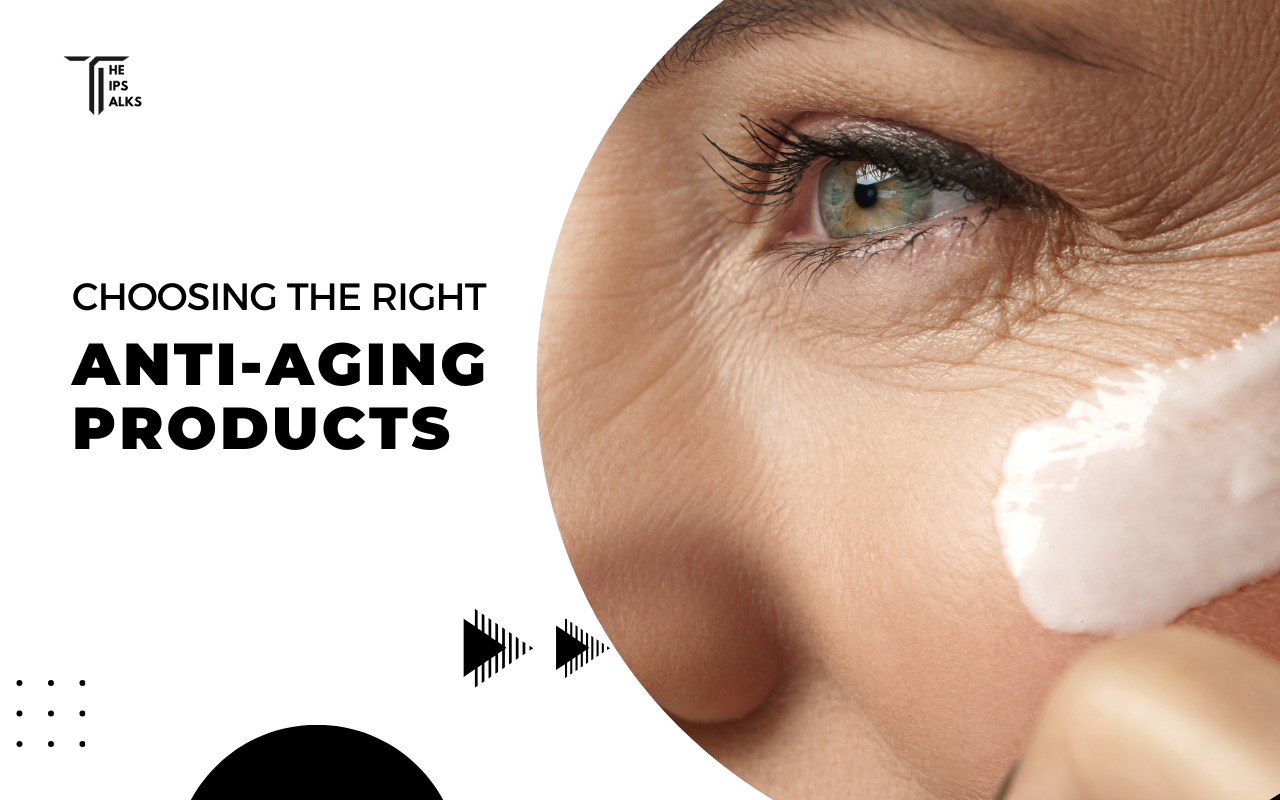When it comes to skincare, there’s one concern that almost everyone eventually faces—aging and choosing the right anti-aging products. The lines start to show, skin loses its bounce, and that once-glowing complexion may start to look tired or uneven. While we can’t stop time, we can give our skin the support it needs to age in a healthier, more graceful way.
This is where anti-aging products step in. From boosting hydration to softening fine lines and improving skin tone, the right product can make a noticeable difference. But with endless options and conflicting advice, choosing the right one for your skin can be confusing. This guide simplifies the process, helping you make better choices for lasting results.
What is an anti-aging product?
An anti-aging product is a skincare formula designed to reduce or delay visible signs of skin aging. These signs include wrinkles, fine lines, sagging, dullness, and uneven skin tone. Products in this category may include serums, moisturiser, eye creams, sunscreens, and overnight masks—each targeting specific concerns.
They often feature ingredients that support collagen production, boost skin hydration, promote cell turnover, or protect against environmental damage like UV rays and pollution. Some aim for instant results, while others focus on long-term skin health.
Importance of anti-aging products in your skin routine
Aging is a natural process, but external factors like sun exposure, stress, poor diet, and lack of sleep can speed it up. Incorporating anti-aging products into your daily routine can help slow this process, keeping your skin firmer, brighter, and more balanced.
These products don’t just make you look better—they support skin health by strengthening the skin barrier, improving elasticity, and preventing damage from free radicals. Starting early with the right skin care can reduce the need for heavier interventions down the line.
Here’s why anti-aging products matter in your daily skin routine:
- Help reduce the appearance of fine lines and wrinkles.
- Boost collagen production for firmer, more elastic skin.
- Improve overall skin tone and texture.
- Restore hydration and prevent dryness-related aging.
- Minimise dark spots and pigmentation issues.
- Protect the skin from environmental damage and pollution.
- Encourage faster skin cell turnover and renewal.
- Support a healthy skin barrier against daily stressors.
- Help maintain a youthful, radiant glow as you age.
Tips for Choosing the right anti-aging products for your skin routine
With so many promises on the shelves, picking the right anti-aging product starts with understanding what your skin needs. It’s not about falling for the most expensive cream or being loyal to a trending brand. What matters is choosing products that match your skin type, age, and specific concerns—without overwhelming your skin in the process.
Here are 10 practical, helpful tips to guide your decision:
1. Know your skin type
Before you buy anything, figure out whether your skin is oily, dry, combination, sensitive, or normal. A product that works well for someone with dry skin might clog pores or cause breakouts for someone with oily skin. Matching your skin type with the right texture—light gel for oily skin, richer creams for dry—can make all the difference.
2. Choose products based on your main concern
Are you more worried about wrinkles, dullness, uneven tone, or sagging? Identify the top 1-2 things you want to improve, and pick products that target those concerns. This avoids overloading your skin and keeps your routine more effective and manageable.
3. Look for active ingredients that are backed by science
Certain ingredients are known for their ability to reduce signs of aging:
- Retinoids/Retinol for reducing fine lines and improving cell turnover
- Vitamin C for brightening and fading dark spots
- Hyaluronic acid for hydration and plumping
- Peptides for firmness and collagen support
- Niacinamide for improved tone and texture
Always read the ingredient list before buying.
4. Consider the concentration and formulation
The presence of a good ingredient means nothing if it’s only included in trace amounts. On the flip side, higher isn’t always better—especially for beginners. Start with milder concentrations and work your way up. Also, choose products in airtight, opaque packaging to protect ingredients from degrading.
5. Don’t be tempted by “instant results”
No cream or serum can erase wrinkles overnight. Brands that over promise usually underdeliver. Real results from anti-aging products show up with consistent use over weeks, not days. Choose products that focus on long-term skin health instead of quick fixes.
6. Start small—don’t overload your routine
Introducing too many active products at once can backfire. Start with one product at a time so your skin can adjust. A gentle cleanser, one anti-aging serum, a moisturiser, and sunscreen are often enough to begin with.
7. Do a patch test before full application
Even if a product looks great on paper, it might not agree with your skin. Always test it behind your ear or on your inner arm for 24–48 hours before applying it to your face. If there’s no itching, redness, or stinging, you’re good to go.
8. Sunscreen is non-negotiable
All your anti-aging efforts will be wasted without daily sun protection. UV damage speeds up aging like nothing else. Choose a broad-spectrum SPF 30 or higher and use it every single day—whether you’re inside, outside, or it’s cloudy.
9. Check the expiry date and packaging
Don’t ignore shelf life. Products that are expired—or poorly packaged—may not only stop working but can irritate your skin. Look for air-tight, pump dispensers and check the expiry before you commit.
10. Pay attention to how your skin responds
Everyone’s skin is different. Just because something worked for a friend doesn’t mean it’ll work for you. Monitor how your skin feels and looks after a few weeks. If irritation or breakouts occur, it’s a sign to switch things up.
Natural vs synthetic anti-aging product – Choosing the right anti-aging products
There’s a growing debate between natural and synthetic skincare, but the truth is—it’s not black and white. Natural ingredients like rosehip oil or green tea extract can be great, but not all are stable or effective in the long run. On the other hand, lab-formulated peptides and retinoids often have better data and performance.
What matters most is how the product is formulated, how your skin reacts to it, and whether it actually delivers results. Don’t get caught up in labels. Safe, effective, and well-formulated is what really counts.
Natural anti-aging hacks to follow beyond anti-aging products
Anti-aging isn’t just about what you apply to your skin—your lifestyle plays a massive role. Here are some natural habits that support healthy, youthful skin:
- Stay hydrated: Drink enough water daily to keep your skin plump and elastic.
- Eat antioxidant-rich foods: Berries, leafy greens, and nuts can fight oxidative stress.
- Get quality sleep: Nighttime is when your skin repairs. Aim for 7–8 hours.
- Exercise regularly: It boosts circulation and delivers nutrients to your skin.
- Manage stress: High cortisol levels can accelerate aging. Try meditation or deep breathing.
- Avoid smoking and excessive alcohol: Both are proven to damage skin over time.
These small daily choices, when combined with good skincare, can slow signs of aging naturally.
To summarize the story
Choosing the right anti-aging product doesn’t have to feel like guesswork. It’s all about understanding your skin, picking proven ingredients, and staying consistent with your routine. Don’t fall for flashy marketing or overnight promises—trust what your skin tells you and adjust when needed.
Pair your products with a healthy lifestyle and sun protection, and you’ll set yourself up for skin that not only looks good but feels good too—no matter your age.


